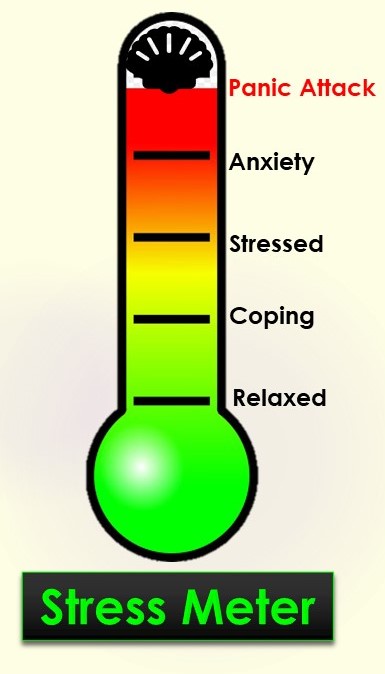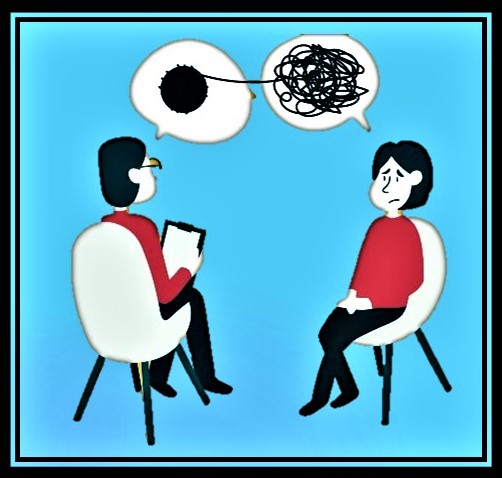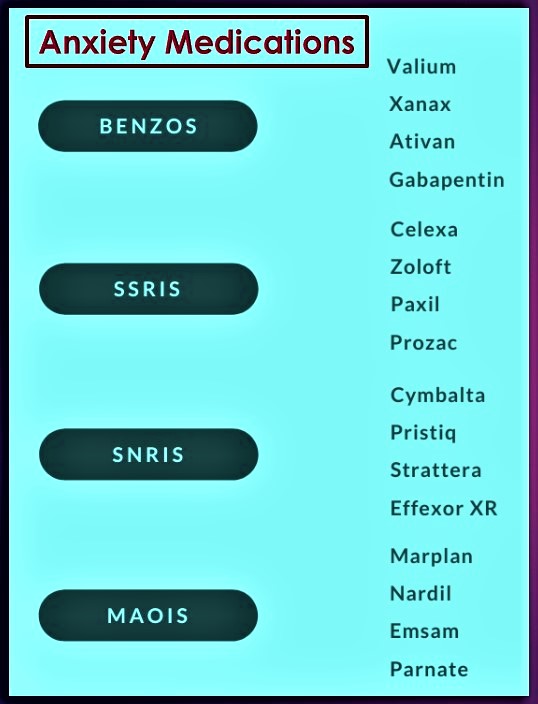
Click here to read this article in Marathi:अँझायटी डिसॉर्डर
Everyone feels anxious or nervous once in a while. Anxiety is a normal reaction to stress and can be beneficial in some situations. It is your brain’s way of reacting to stress and alerting you of potential danger ahead.
Anxiety disorder is a condition that causes person to feel extremely worried or nervous. The feelings are so strong that they can cause problems with daily activities or sleep. Anxiety may be triggered by something or it may happen without a cause. Anxiety can become a long-term condition if it is not managed or treated.
As per CDC, in the United States, 40 million adults (18%) age 18 and older and 25% of children between 13 and 18 years old have anxiety.
Causes of anxiety include:
- Genetics. A person who has a family member with anxiety is more likely to have anxiety too. They may inherit genes from their parents that make them prone to anxiety.
- Brain chemistry: Brain chemicals (called neurotransmitters) influence a person’s anxiety level. Low levels of some transmitters can cause anxiety.
- Life situations: Things that happen in a person’s life can be stressful and hard to cope with. Loss, serious illness, death of a loved one, violence or abuse can lead to anxiety.
- Learned behaviors: Growing up in a family where others are fearful or anxious can “teach” a child to be afraid.
Risks for anxiety:
- A parent with an anxiety disorder
- Stress at home, school, or work, or in a relationship
- Use of caffeine or nicotine products
- Certain medicines or health conditions
- Changes in child’s body or emotions from puberty
- Not feeling accepted for the way he or she looks, thinks, or acts
Symptoms of anxiety:
- Emotional symptoms, such as feelings of fear or worry that are greater than they need to be, based on the situation.
- Physical reactions, such as a fast heart rate, rapid breathing, feeling sweaty or faint, having a stomachache, shaking, having a headache or trouble sleeping.
- Behavioral reactions, such as avoiding situations or activities, seeking an unusual amount of reassurance, or insisting on certain routines in order to feel a sense of relief or safety.
Different types of anxiety disorders1:
- Separation anxiety: Being very afraid when away from parents
- Constant thoughts and intense fears about the safety of parents and caretakers
- Refusing to go to school
- Frequent stomachaches and other physical complaints
- Extreme worries about sleeping away from home
- Being overly clingy
- Panic or tantrums at times of separation from parents
- Trouble sleeping or nightmares
- Phobias: Having extreme fear about a specific thing or situation, such as dogs, insects, or going to the doctor.
- Agoraphobia: an intense fear of being in a place where it seems hard to escape or get help if an emergency occurs. For example, feeling anxious when on an airplane, public transportation, or standing in line with a crowd.
- Social anxiety: Being very afraid of school and other places where there are people
- Fears of meeting or talking to people
- Avoidance of social situations
- Few friends outside the family
- Selective mutism: This is a type of social anxiety in which young kids who talk normally with their family don’t speak in public, like at school.
- Generalized anxiety disorder: Being very worried about the future and about bad things happening
- Many worries about things before they happen
- Constant worries or concerns about family, school, friends, or activities
- Repetitive, unwanted thoughts (obsessions) or actions (compulsions)
- Fears of embarrassment or making mistakes
- Low self esteem and lack of self-confidence
- Panic disorder: A panic attack is a sudden, intense fear or anxiety that may make you short of breath or dizzy or make your heart pound. You may feel out of control. Some people believe that they are having a heart attack or are about to die. An attack usually lasts from 5 to 20 minutes. But it may last even longer, up to a few hours. If these attacks happen often, they are called a panic disorder. People with panic disorder get repeated episodes of sudden, unexpected, intense fear that come with symptoms like
- Feel very scared and nervous
- Shaky and sweaty
- Chest pain
- Trouble breathing
- A fast heartbeat
- Headache
- Stomachache
- Dizziness

Obsessive-compulsive disorder (OCD) and Posttraumatic stress disorder (PTSD) used to be under anxiety disorders until 2013. Now, they are reclassified to new categories.
Anxiety is a common problem. There is no reason to feel embarrassed about getting treatment for anxiety. It affects all kinds of people.
Being healthy is important for all, and can be especially important for children with anxiety. In addition to getting the right treatment, leading a healthy lifestyle can play a role in managing symptoms of anxiety. Here are some healthy behaviors that may help:
- Having a healthy eating plan centered on fruits, vegetables, whole grains, legumes (beans, peas, and lentils), lean protein sources, and nuts and seeds. For more information: A Mindful Diet
- Participating in physical activity each day based on age. For more information, click here: Dare to be fit!
- Getting the recommended amount of sleep each night based on age. For more information, click here SHHH…My Brain Is Sleeping
- Avoid caffeine (including soda and energy drinks).
- Studies indicate that people who consume omega 3s regularly are less likely to be depressed. The omega 3s supplements can improve their depression and anxiety symptoms. For more information: Do I Need Fish Oil?
- Practicing mindfulness or relaxation techniques. For more information, click here: Brain Power Matters!
Tips for parents: when your child feels anxious:
- Listen. Hear what your child has to say about his or her worries. Say that you know that these feelings are real. Remind him/her that anxiety is a normal feeling.
- Encourage your child to talk with someone about the anxiety.
- Be supportive and patient. Do not force your child to do something he/she is too anxious to do.
- Face the situation. Help your child slowly get used to situations that make him/her anxious. Doing this will help him see that the situation is not as bad as expected and that he/she can handle it.
- Offer support. Children look to adults for how to respond in new situations or in situations that may cause anxiety. Stay calm and let him/her know you believe that he/she can face the fears. Say something like, “I know this is difficult, but I know you can do it.”
- Teach positive self-talk. Work with your child to learn to say encouraging things to himself or herself, such as “I can get through this,” “I have done something like this before,” or “What is the worst that can happen?”
- Teach relaxation. Activities such as exercise, meditation, deep breathing or listening to music can help your child relax. By doing this while feeling relaxed, your child will be ready to try it when feeling anxious.
- Help your child create a sleep routine. Regular sleep can help your child feel calmer during the day. Do not let your child watch television or use the computer right before bed. His or her room should be comfortable, dark, and quiet.
- Show your pride. Let him/her know that you are proud when he or she faces fears. Celebrate their successes with a small reward. For example, you may take him/her out to a favorite restaurant.
Treatments include: Severe anxiety problems in children can be treated. Early treatment can prevent future difficulties, such as loss of friendships, failure to reach social and academic potential, and feelings of low self-esteem. Treatments may include a combination of the following: individual psychotherapy, family therapy, medications, behavioral treatments, and consultation to the school.

- Psychotherapy: It involves meeting with a mental health counselor to talk about your feelings, relationships, and worries. Therapy can help you find new ways of thinking about your situation so that you feel less anxious. In therapy, you might also learn new skills to reduce anxiety.
- Cognitive behavioral therapy (CBT) This common type of psychotherapy teaches you how to turn negative, or panic-causing, thoughts and behaviors into positive ones.
- Medicines : Medicines used to treat depression can relieve anxiety, too, even in people who are not depressed. Your doctor will decide which medicines are best for your situation.

Some people have psychotherapy and take medicines at the same time.
References:

Fantastic article!
Thank you!